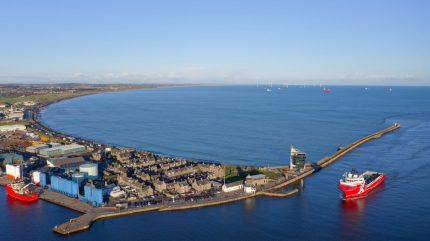
The UK Government is set to reassure the North Sea oil and gas sector that the transition to clean energy will be well-considered.
Labour plans to ease by ensuring that the shift away from fossil fuels will be managed responsibly, following industry apprehension about the speed of the transition, according to several UK media reports on Tuesday.
Prime Minister Keir Starmer has pledged to cease issuing new North Sea oil and gas licences to uphold global climate commitments, as well as proposing increased windfall taxes for the sector.
The party stated that it would raise the windfall tax on profits from North Sea oil and gas to 78% and eliminate the “unjustifiably generous investment allowances” companies currently use to reduce their tax burden.
In contrast, the Conservative Party had planned to issue new exploration licences annually, while Labour promised to discontinue this practice. This move could reduce employment in the North Sea and Scotland as fields deplete and companies seek new opportunities.
During the campaign, Labour also committed to maintaining a strategic reserve of gas power stations to ensure a secure energy supply. The party emphasised a “phased and responsible transition in the North Sea that acknowledges the proud history of our offshore industry”.
How well do you really know your competitors?
Access the most comprehensive Company Profiles on the market, powered by GlobalData. Save hours of research. Gain competitive edge.

Thank you!
Your download email will arrive shortly
Not ready to buy yet? Download a free sample
We are confident about the unique quality of our Company Profiles. However, we want you to make the most beneficial decision for your business, so we offer a free sample that you can download by submitting the below form
By GlobalDataThroughout the UK election campaign, Starmer reassured voters that transitioning to a greener economy would not lead to job losses.
However, his pledges on oil licensing have raised concerns about potential employment challenges, as Labour has not provided clear answers about the impact on industry workers.
Analysts cautioned that if Labour’s policies are poorly implemented or the transition process is mismanaged, it could lead to employment turmoil within the sector.
This would exacerbate existing concerns about the economy and echo the structural and industrial difficulties faced by Thatcher’s government during the 1980s miners’ strike.


